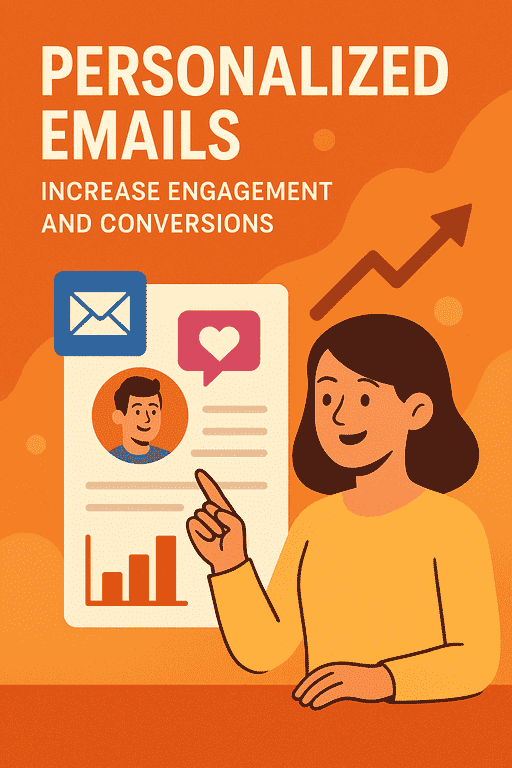In today's digital landscape, consumers are inundated with generic marketing messages. Personalized emails stand out by delivering relevant content tailored to individual preferences, leading to higher engagement and conversions.
Benefits of Personalized Emails
Increased Open Rates
Personalized subject lines can boost open rates significantly.
Higher Click-Through Rates
Tailored content encourages recipients to engage with your emails.
Improved Customer Retention
Relevant messaging fosters loyalty and repeat business.
Enhanced ROI
Personalized campaigns often yield better returns compared to generic ones.
How to Personalize Emails
Segment Your Audience
Divide your email list based on demographics, purchase history, or engagement levels.
Use Dynamic Content
Incorporate elements that change based on the recipient's data, such as name or location.
Behavioral Triggers
Send emails based on user actions, like cart abandonment or browsing behavior.
Personalized Recommendations
Suggest products or services based on past purchases or interests.
Tailored Send Times
Schedule emails when individual recipients are most likely to engage.
Common Mistakes to Avoid
-
Over-Personalization
Avoid making emails feel intrusive by using too much personal data.
-
Lack of Testing
Regularly test different personalization strategies to determine what resonates best.
-
Ignoring Data Privacy
Ensure compliance with data protection regulations when collecting and using personal information.
Tools for Email Personalization
Mailchimp
Offers segmentation and dynamic content features.
ActiveCampaign
Provides advanced automation and personalization options.
HubSpot
Integrates CRM data for tailored email campaigns.
Campaign Monitor
Allows for personalized email templates and analytics.
Frequently Asked Questions
How can I start personalizing my emails?
Begin by collecting relevant data on your subscribers and segmenting your audience accordingly. Use this information to tailor your email content.
Is personalization suitable for small businesses?
Absolutely. Personalized emails can help small businesses build stronger relationships with their customers and stand out in a crowded market.
What kind of data should I collect for personalization?
Collect data such as purchase history, browsing behavior, location, and preferences to create more relevant email content.
Conclusion
Personalized emails are a powerful tool for increasing engagement and conversions. By delivering relevant content tailored to individual preferences, businesses can build stronger relationships with their customers and achieve better marketing results.

